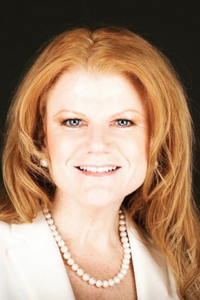As the world looks forward to approaching some semblance of normalcy, education proceeds cautiously, with some schools having to continue pivoting to remote instruction as new variants emerge. These last two years have ultimately forced schools to rethink their curricula and instructional materials, while placing more emphasis on soft skills and emotional intelligence.
Post pandemic, it is essential for educators to address each student not only holistically but also proactively rather than reactively. Since learning has been significantly disrupted in the wake of COVID-19, education must focus on not only the academic development but the social-emotional well-being of young people in and out of school. That’s why school districts across the country are focusing on mindfulness and mental health now more than ever.
To be proactive, we must train our educators in effective approaches to social-emotional learning so that incorporating it daily becomes routine. Although classroom teachers already do so much, it is essential that we support them in addressing a wide-ranging set of challenges that students may be facing. Such an approach will benefit students and educators alike. Why? Because making SEL training accessible to teachers will give them opportunities to both learn and balance the social and emotional stressors they experience daily in this challenging yet rewarding profession.
Oftentimes, though, schools take a reactive approach to a student’s academic and behavior challenges. Applying the core competencies of social-emotional learning, however, allows us to more effectively engage with our students.
In this post-pandemic world, a proactive approach to learning and social-emotional development by educators, mental health counselors, and school leaders , can help everyone better navigate the trauma of the pandemic. And that trauma is profound. According to a recent study published in JAMA Pediatrics, one in five students experience anxiety, while one in four suffer from depression.
What is our collective response post-pandemic? Will it continue to be reactive? Or will we embrace social-emotional learning, by placing it at the forefront of the learning recovery effort?
To support educators in centering social-emotional learning, The Conover Company offers a free SEL resource. It’s a video series for use in the classroom, in workshops, or even in your own family to help your children understand what soft skills are exactly and why they’re so vitally important. This series covers 11 SEL core competencies that contribute to increases in learning and positive behaviors. And it can help you and your students now.
If you would like to access the 11 Essential Social and Emotional Competencies Your Students Need, click here.
Sponsored Content Disclaimer:
Sponsored Content in Partnership With NASSP
NASSP allows select groups to share information and thought leadership with our program audiences.


2 Comments
I agree that social emotional development by educators
can help everyone better navigate the trauma of the pandemic. Here in my place a lot of my friends just decided to stop school because of the depression that starts with their family. Instead of focusing on their studies it affects how they perform during class and modules. Like they don’t have the energy to do things. That is why I agree that we students need help from our mentor. That we need to be motivated to still study after all of these disasters. That if your student is dealing with something that is affecting his grade, talk to him. Talk about what is bothering him or at least try to list things that you can do to help that student. How I wish everything will be back to normal. I miss school.
Thank you for sharing this article:-)